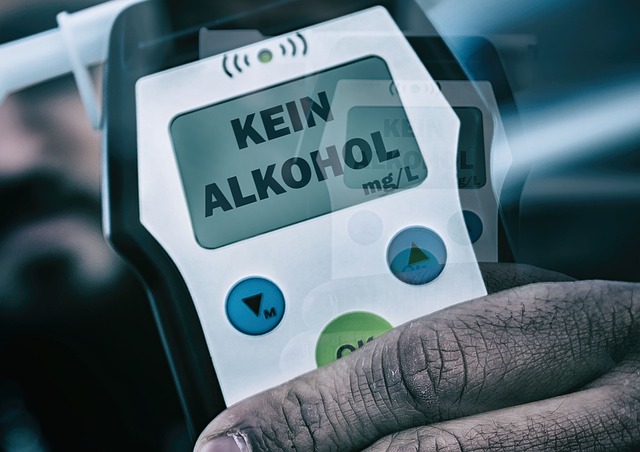Rural and urban areas face distinct challenges regarding DUI (drunk driving) legislation due to environmental differences. Urban regions, with higher populations and accessible law enforcement, enforce stringent rules and zero-tolerance policies, while rural communities struggle with less frequent patrols, wider spaces, and unique social dynamics. This disparity impacts public safety, requiring tailored solutions. Rural areas should focus on increased education, community involvement, and local support networks, while urban centers can leverage technology and specialized services to deter DUI and reduce recidivism rates. Effective legislation bridges the gap by addressing each region's specific needs, enhancing overall community safety regarding DUI.
Community service plays a vital role in making amends for drunk driving, yet disparities exist between rural and urban areas in terms of legislation and enforcement. This article delves into the complexities of rural vs. urban DUI legislation, exploring its impact on community safety and justice. We examine challenges faced in rural settings, contrast them with urban approaches, present successful case studies, and propose strategies to bridge the divide. Understanding these nuances is crucial for enhancing DUI programs and ensuring uniform accountability across all communities.
- Understanding Rural and Urban DUI Laws: Unraveling Disparities
- The Impact of Legislation on Community Safety
- Challenges in Enforcing DUI Laws in Rural Areas
- Enhancing Justice: Urban Communities and DUI Penalties
- Case Studies: Successful Implementation of DUI Programs
- Building a Unified Approach: Bridging the Rural-Urban Divide
Understanding Rural and Urban DUI Laws: Unraveling Disparities

In the realm of DUI (Driving Under the Influence) legislation, a stark contrast emerges between rural and urban areas. Rural vs urban DUI laws often differ significantly, reflecting the distinct characteristics of each environment. While urban regions typically have well-established and stringent DUI regulations, driven by higher population densities and readily accessible law enforcement, rural areas face unique challenges. Herein lies the disparity: less frequent police patrols and wider geographic spreads can make it easier for individuals to drive under the influence without detection in rural settings. As a result, these areas may see fewer arrests and convictions, leading to the perception of looser DUI laws.
Understanding this disparity is crucial when considering the impact on public safety. Urban DUI legislation often includes stricter penalties and zero-tolerance policies, aiming to deter drinking and driving behavior given the higher risk of accidents and congestion. In contrast, rural areas may require tailored approaches that address their specific needs, such as increased educational campaigns and community involvement, to counterbalance the potential for reduced enforcement.
The Impact of Legislation on Community Safety

In many regions, legislation plays a pivotal role in enhancing community safety, particularly regarding issues like drunk driving (DUI). The impact of this legislation is often felt more acutely in urban areas, where dense populations and bustling streets necessitate stricter rules to protect citizens. In contrast, rural communities may face different challenges due to lower population densities and varying social dynamics, leading to a need for tailored legislation. For instance, the Rural vs Urban DUI Legislation debate highlights these disparities; urban areas might implement stricter penalties and zero-tolerance policies, while rural regions could advocate for more nuanced approaches considering unique circumstances.
The interplay between legislation and community safety is complex. Effective laws must address specific regional needs, whether in vibrant cities or tranquil countryside settings. By understanding these differences, policymakers can create laws that not only deter DUI but also consider practical implications, ensuring public safety without unduly burdening any particular community.
Challenges in Enforcing DUI Laws in Rural Areas

In rural areas, enforcing DUI (drunk driving) laws presents unique challenges distinct from urban settings. The vast distances and lower population densities make it more difficult for law enforcement to patrol and set up checkpoints, which are crucial tools in urban DUI legislation. Additionally, the lack of public transportation means that those under the influence have fewer alternatives to drive home, making it harder to identify potential offenders. These factors contribute to a complex landscape where traditional methods of DUI enforcement may not be as effective.
The disparity between rural and urban DUI legislation is stark. Urban areas often benefit from denser populations and better-developed public transit systems, enabling more comprehensive coverage and enforcement strategies. In contrast, rural communities struggle with limited resources and higher costs per capita for law enforcement services, further complicating the already challenging task of deterring and prosecuting drunk driving offenses.
Enhancing Justice: Urban Communities and DUI Penalties

In urban communities, where dense populations and vibrant landscapes prevail, the impact of DUI (Driving Under the Influence) penalties is profoundly felt. The sheer number of individuals living close to one another means that the consequences of reckless driving can quickly ripple through the community. Unlike rural areas, where distances are vast and populations sparse, urban centers face unique challenges when it comes to enforcing and mitigating the effects of DUI laws. This disparity highlights a crucial aspect: Rural vs Urban DUI legislation needs to be tailored to address the specific justice requirements of each region.
Urban communities often grapple with more severe DUI penalties due to the heightened risk of accidents and their potential impact on densely populated areas. The close-knit nature of urban life means that any mistake behind the wheel can have immediate and far-reaching consequences, affecting not just the individual but also their neighbors and the broader community. As a result, stringent measures are often implemented to deter DUI instances, ensuring public safety remains a top priority.
Case Studies: Successful Implementation of DUI Programs

In addressing DUI (Driving Under the Influence) issues, community service plays a pivotal role in making amends and fostering safer environments. Case studies highlight successful implementations where community-driven initiatives have significantly reduced recidivism rates, particularly in contrasting rural and urban settings. In rural areas, where enforcement resources might be more limited, innovative programs focus on education and support networks. For instance, some communities organize peer-led awareness campaigns, utilizing local influencers to disseminate information about the perils of DUI. These efforts are often combined with mentorship programs that help individuals cope with underlying issues contributing to impaired driving.
In contrast, urban centers benefit from more extensive legislation and resources, enabling them to implement robust DUI intervention strategies. Urban-based programs frequently incorporate technology, such as smartphone apps promoting responsible drinking and providing immediate assistance. Additionally, these areas may have access to specialized courts and rehabilitation centers tailored to DUI offenders, offering intensive treatment and aftercare support. These successful case studies demonstrate that community engagement and targeted interventions can substantially impact DUI prevention, ultimately saving lives and strengthening communities across diverse landscapes.
Building a Unified Approach: Bridging the Rural-Urban Divide

In addressing issues like community service as a means of making amends, it’s crucial to adopt a unified approach that bridges the divide between rural and urban communities. The stark contrast in the enforcement of DUI (Drunk Driving Under Influence) legislation highlights this digital era enigma. Rural areas often struggle with limited access to resources and support, while urban centers grapple with unique challenges such as dense populations and fast-paced lifestyles.
A holistic strategy must consider these disparities. This involves tailoring community service initiatives to cater to the specific needs of each region. For instance, rural communities could benefit from programs that enhance awareness and education about DUI, leveraging local support networks. In contrast, urban areas might focus on intensifying enforcement while providing specialized services for those who have been affected by drunk driving, addressing the root causes through education and rehabilitation.
The disparities between rural and urban DUI legislation highlight the need for a unified approach to community safety. By understanding the unique challenges faced in both settings, we can develop more effective strategies to deter and mitigate drunk driving. Bridging the rural-urban divide through enhanced cooperation and resource sharing will ensure that everyone, regardless of location, benefits from stringent DUI laws and supportive community programs. This holistic approach ultimately contributes to safer roads and stronger communities across the board.






